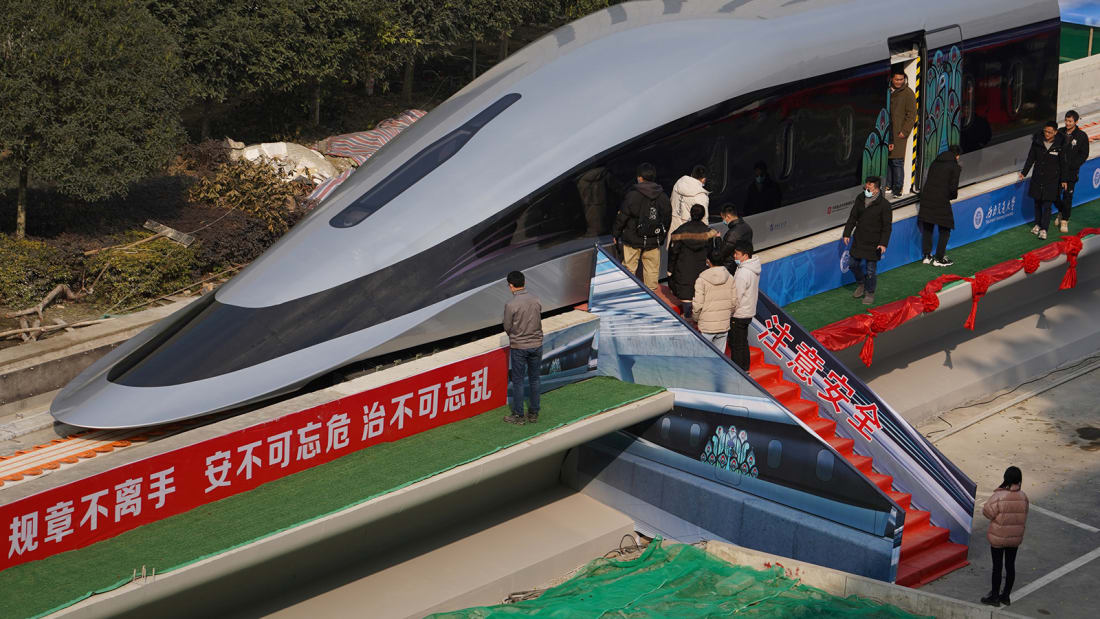China debuts train prototype that can hit speeds of 620 kilometers per hour

(CNN) — China
has revealed a prototype for a new high-speed Maglev train that is
capable of reaching speeds of 620 kilometers (385 miles) per hour.
The
train runs on high-temperature superconducting (HTS) power that makes
it look as if the train is floating along the magnetized tracks.
The
sleek 21-meter-long (69 feet) prototype was unveiled to media in the
city of Chengdu, Sichuan Province, on January 13. In addition,
university researchers constructed 165 meters (541 feet) of track to
demonstrate how the train would look and feel in transit, according to
state-run Xinhua News.
Professor
He Chuan (vice president of Southwest Jiaotong University, which worked
on the prototype) told reporters that the train could be "operational"
within 3-10 years.
He
added: "Sichuan has rich rare earth resources, which is very beneficial
to our construction of permanent magnet tracks, thus promoting the
faster development of experiments."

One possible interior for the new Maglev train.
Liu Kun/Xinhua/Sipa USA
China
is home to the world's largest high-speed rail network, which stretches
over 37,000 kilometers, and the fastest commercially operating train --
the Shanghai maglev.
The
country's first high-speed Maglev train, it began operating in 2003.
Running at a top speed of 431 kph, the train links Shanghai Pudong
Airport and Longyang Road in the eastern side of Shanghai.
China has been eager to make further infrastructure improvements ahead of the 2022 Winter Olympics, which will take place in Beijing.
This
time last year, China unveiled a new 174-kilometer high-speed railway
line connecting Beijing with 2022 Winter Olympics host city Zhangjiakou,
cutting the travel time between the two from three hours to 47 minutes.
Earlier this month, the country debuted a bullet train specifically designed to withstand freezing temperatures.
The CR400AF-G train can travel up to 350 kilometers per hour in weather
as cold as -40 degrees Celsius (-40 degrees Fahrenheit).
It will run on routes between Beijing, Shenyang and Harbin -- the latter of which is so cold that it hosts an annual snow and ice festival.



No comments